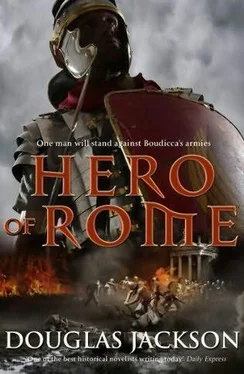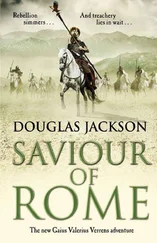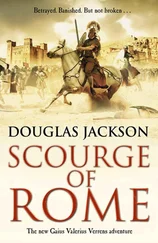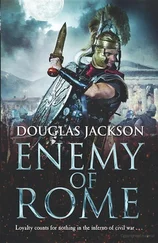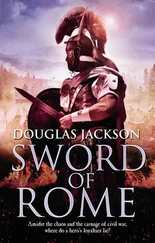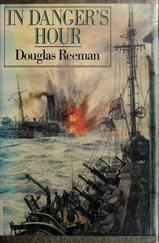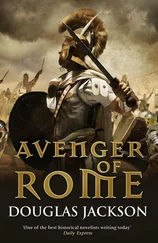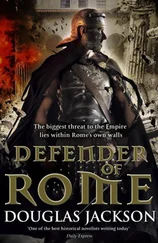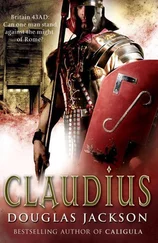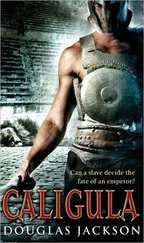Douglas Jackson - Hero of Rome
Здесь есть возможность читать онлайн «Douglas Jackson - Hero of Rome» весь текст электронной книги совершенно бесплатно (целиком полную версию без сокращений). В некоторых случаях можно слушать аудио, скачать через торрент в формате fb2 и присутствует краткое содержание. Жанр: Исторические приключения, на английском языке. Описание произведения, (предисловие) а так же отзывы посетителей доступны на портале библиотеки ЛибКат.
- Название:Hero of Rome
- Автор:
- Жанр:
- Год:неизвестен
- ISBN:нет данных
- Рейтинг книги:5 / 5. Голосов: 1
-
Избранное:Добавить в избранное
- Отзывы:
-
Ваша оценка:
- 100
- 1
- 2
- 3
- 4
- 5
Hero of Rome: краткое содержание, описание и аннотация
Предлагаем к чтению аннотацию, описание, краткое содержание или предисловие (зависит от того, что написал сам автор книги «Hero of Rome»). Если вы не нашли необходимую информацию о книге — напишите в комментариях, мы постараемся отыскать её.
Hero of Rome — читать онлайн бесплатно полную книгу (весь текст) целиком
Ниже представлен текст книги, разбитый по страницам. Система сохранения места последней прочитанной страницы, позволяет с удобством читать онлайн бесплатно книгу «Hero of Rome», без необходимости каждый раз заново искать на чём Вы остановились. Поставьте закладку, и сможете в любой момент перейти на страницу, на которой закончили чтение.
Интервал:
Закладка:
‘You fought well on Mona, my Mules, but I have brought you here for a little more javelin practice.’ The words carried along the line and Valerius could see men grinning at the unlikely familiarity. ‘Those who stand before you have murdered, tortured and raped Roman citizens, men, women and children; innocents whose only crime was to attempt to bring civilization to this land. They butchered and mutilated your comrades of the Ninth, and the brave veterans of Colonia who fell defending the Temple of Divine Claudius.’ He paused and the silence was filled by a growl, like an enormous dog gathering itself for the attack. ‘We offered them our friendship, our trust and our aid, and they took all with smiles of thanks, but when we turned our backs they reached for the knife and the sword and the spear, as is their way. They believe you are already defeated.’
‘No!’ The massed roar carried across the valley and echoed from the banks.
‘They are the true face of barbarism. They are your enemy. They show no mercy and they deserve no mercy. Give them none. For Rome!’
‘For Rome!’ The words erupted from ten thousand throats and Valerius felt the ice in his belly melt and the first stirrings of life return to his heart.
‘For Rome,’ he whispered.
An enormous clamour of horns signalled the enemy advance and the Roman ranks opened to allow Paulinus and his aides through to relative safety. From behind the rear cohorts of the Fourteenth Valerius watched as the Britons surged up the slope towards the waiting legionaries. The slope was long and it took time for the first warriors to reach the small stakes the centurions had placed forty paces ahead of the line, the optimum killing range of the pilum. Within that narrow corridor no legionary would miss his target. As the Britons charged, the ballistas tore gaping holes in the front ranks, the big arrows gutting two or three men at a time before they spent their power. Four cohorts made up the first of the Roman lines, including the elite, reinforced First; more than two thousand men. They had time only for a single cast before the howling mass of Britons fell upon them, but that single cast scythed down the vanguard of the attack as if it were made of summer grass and not flesh, blood and bone. Yet Boudicca had an endless, willing supply of fighting men, and those men, it seemed, had an unlimited supply of courage. Only the wealthy were equipped with shield and sword; most fought with spears. When one fell, he was replaced in an instant, and when he fell in his turn, two or three more fought to take his place. Celtic iron and Roman shields met with a clash like the combined fury of the gods, and Celtic iron still outnumbered Roman by ten to one. But once more Valerius witnessed the way the very numerical superiority of the attackers played against them when they met men determined to stand their ground behind the shoulder-high shields. Those in the vanguard of the assault were forced directly on to the Roman line by the weight and numbers of those behind. How can a man fight when he barely has room to breathe? The legionaries grunted and snarled insults as the long swords and wide-bladed spears sought them out, and the Britons grunted and snarled back as they heaved and battered at the impenetrable wall in front of them. But it was the Britons who were dying. Between each pair of shields a gladius punched with the speed of a striking cobra and every blow took its toll with murderous precision. From behind the front line, the cohorts of the second and third lines hurled volley after volley of javelins into the packed ranks in front of the shields. In the first fifteen minutes of the attack Valerius estimated that Boudicca lost five thousand dead and injured. The wounded pleaded, squirmed and wriggled amidst their own gore beneath the feet of the uninjured, only to be trampled and suffocated. Centurions ranged behind the Roman front line shouting themselves hoarse and ordering replacements for men badly wounded or too exhausted to raise their shields. One by one, these fell back to ease parched throats and grab a crust of bread before they were kicked and bullied back into the killing machine. The rotation kept the shield line from cracking and the little swords jabbed out relentlessly, killing or maiming with every thrust. As long as their supply held out the nearly three thousand men of the six supporting cohorts kept up the rain of spears, the heavy lead-weighted missiles plunging down on the mass of flesh below.
By noon, the British casualties were already enormous, but Paulinus’s battle line had weathered every crisis. An hour later, Valerius sensed a weakening of the British resolve. It was nothing tangible; the pressure on the front rank was as relentless as ever. But hour after hour of pushing at the backs of their comrades to no apparent purpose had doused the fire in the hearts of those in the centre and rear. Paulinus noticed it too, and his head came up like a deerhound hitting the scent. He looked out over the battlefield and saw his enemy at a standstill, the rearward ranks lethargic and neutralized. This was the moment, he realized, when the battle was his to win or lose. If he didn’t act, the certainty was that he would eventually be defeated. His men could wield a sword and bear a shield for only so long. A legionary’s strength was finite like that of all men. The alternative was a gamble, but a gamble he must take.
‘Sound “Form wedge”,’ he ordered. The cornicen at his shoulder put his horn to his lips, and the distinctive call rang out along the line.
With swift, orchestrated movements the centuries of the first two lines transformed into the devastating arrowhead attack formations and launched themselves into the face of the Celtic attack. The wedges carved great swathes through the rebel ranks, and behind them came the Roman reserves still in their disciplined lines, their shields beating down any who escaped between the arrowheads.
‘Send in the cavalry,’ Paulinus ordered, and the auxiliary horsemen smashed into the British flanks, adding to the carnage.
Valerius held his breath. Now was the time for Boudicca to withdraw her forces and save what she could. Only twenty thousand or so had been involved in the actual combat; the rest were spectators. If she retired, Paulinus would have to fight her again tomorrow, and the day after that. But it was not within her power to do so. The thousands of booty-laden ox carts and chariots of the rebel baggage train acted like a dam against which the Romans forced back the great seething pool of Boudicca’s followers. If one man fell, ten fell with him and all were crushed beneath the feet of their comrades as they milled and wheeled, looking for somewhere to run or someone to fight. Paulinus turned his horse away.
‘Spare none,’ he said.
Boudicca watched the Roman wedges smash into her stunned forces, the shock waves of their coming fracturing resolve even in the rear where she stood by her chariot with Banna and Rosmerta, helpless to alter the course of a battle she had wanted to fight on another day in another place. In that moment, she recognized her defeat. Andraste had deserted her.
She turned to the two girls and they were surprised to see her eyes damp with tears; it was the first time she had wept since the Romans came to Venta. Neither of them had shared her frightening hunger for vengeance, but they had never left her side. Now they prepared to share her fate.
She reached for the vial which hung at her throat below the golden torc. It was blue and made of fine Roman glass, but she found no irony in that. The contents were a poison of her own manufacture, tested on Roman prisoners who were among the fortunate few to meet a quick and painless end. She found her hand shaking as she raised it to Banna’s mouth, but the blond-haired girl raised her own hand to steady her mother’s before swallowing deeply from the container. Rosmerta swiftly followed suit, her face a mask of determination belied by the frank terror in her eyes. Boudicca’s heart swelled to bursting. How she loved them.
Читать дальшеИнтервал:
Закладка:
Похожие книги на «Hero of Rome»
Представляем Вашему вниманию похожие книги на «Hero of Rome» списком для выбора. Мы отобрали схожую по названию и смыслу литературу в надежде предоставить читателям больше вариантов отыскать новые, интересные, ещё непрочитанные произведения.
Обсуждение, отзывы о книге «Hero of Rome» и просто собственные мнения читателей. Оставьте ваши комментарии, напишите, что Вы думаете о произведении, его смысле или главных героях. Укажите что конкретно понравилось, а что нет, и почему Вы так считаете.
